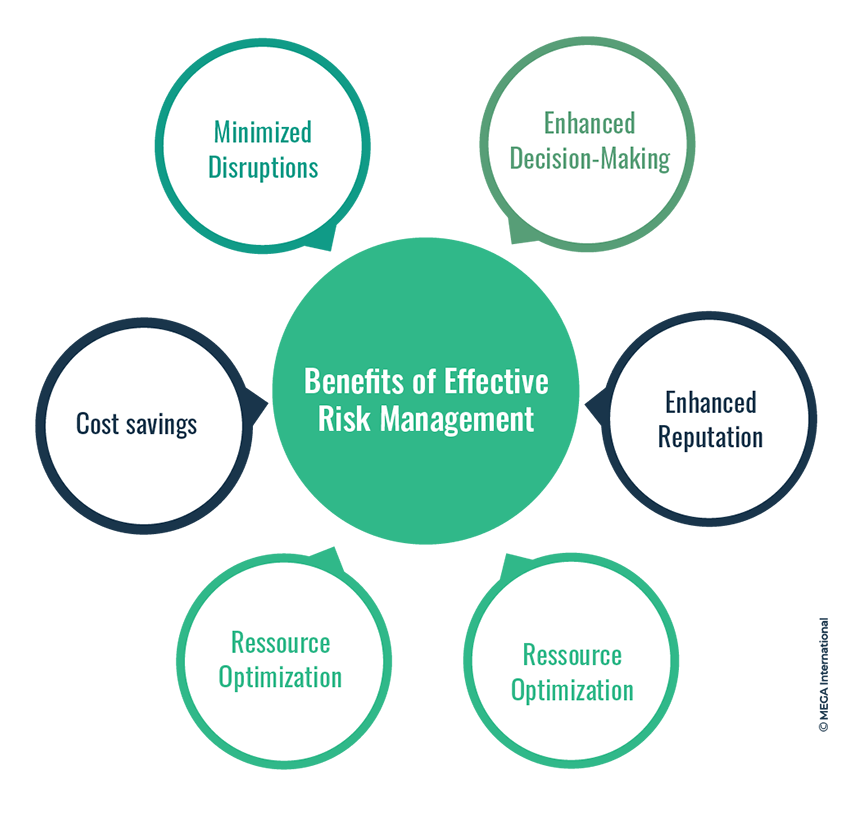Discovering the Significance of Risk Management for Effective Decision-Making Approaches
In the detailed globe of business, Risk Management emerges as a critical consider the decision-making process. The capability to recognize possible hazards and chances, and strategize appropriately, can spell the distinction in between success and failing. With tools such as SWOT and PESTEL, companies are geared up to make enlightened choices, promoting durability and flexibility in an ever-changing setting. Wondering exactly how this functions? Allow's unpack the dynamics better.
Recognizing the Principle of Risk Management
Risk Management, a crucial part in decision-making, is commonly misconstrued or oversimplified. Normally, it refers to the recognition, evaluation, and prioritization of threats to lessen, check, and manage the likelihood or impact of unfavorable events. However, it's not simply about preventing unfavorable outcomes, however additionally concerning identifying potential chances. Risk Management entails structured and self-displined approaches, making use of data and insightful assessments. It needs a thorough understanding of the company's context, purposes, and the possible threats that could prevent them. From financial unpredictabilities, legal obligations, calculated Management mistakes, to crashes and natural catastrophes, it addresses different threats. Significantly, reliable Risk Management is not stationary; it's a continual, positive procedure that develops with changing situations.
The Role of Risk Management in Decision-Making Processes
In the world of calculated planning and service procedures, Risk Management plays an essential duty in decision-making processes. It aids in recognizing potential threats and unpredictabilities that can affect the achievement of business goals. By tracing these dangers, business can develop methods to reduce their impact, ensuring organization connection and stability. Risk Management hence comes to be an important tool in decision-making, assisting leaders to make educated choices based on a comprehensive understanding of the threats involved. It urges an aggressive strategy, making it possible for organizations to prepare and prepare for for possible future scenarios. This substantially minimizes the likelihood of negative consequences, advertising extra effective and efficient decision-making methods. Risk Management offers as a vital element in the decision-making processes of any kind of company.

Just How Risk Management Improves Strategic Preparation
In the context of calculated planning, Risk Management plays a pivotal function. Initiating with the identification of possible threats, it further expands to the implementation of Risk mitigation steps. The role of Risk Management is vibrant but not fixed, as it requires continuous monitoring and adjusting of approaches.
Identifying Prospective Dangers

Carrying Out Risk Reduction
Risk mitigation techniques can vary from Risk avoidance, Risk transfer, to take the chance of decrease. Each strategy ought to be customized to the details Risk, considering its potential influence and the organization's Risk resistance. Effective Risk mitigation needs a deep understanding of the Risk landscape and the possible influence of each Risk.
Surveillance and Adjusting Strategies
Though Risk mitigation is a crucial action in calculated planning, continual monitoring and modification of these methods is similarly crucial. This ongoing process allows organizations to identify new dangers and reassess existing ones, making sure the executed approaches stay efficient in the ever-changing business atmosphere. It additionally gives a chance to review the success of the Risk Management steps, enabling adjustments to be made where necessary, further enhancing strategic preparation. Reliable monitoring and modification require making use of analytics and essential performance indicators (KPIs) to gauge efficiency. These devices offer valuable data-driven understandings that can inform calculated decision-making. Monitoring and readjusting Risk Management techniques is an essential element for boosting an organization's durability and tactical preparation.
Situation Researches: Successful Risk Management and Decision-Making
In the world of organization and finance, successful Risk Management and decision-making usually offer as the pillars of prosperous business. These situations highlight the value of astute best site Risk Management in decision-making processes. These instances underscore the crucial duty of Risk Management in strategic decision-making.
Devices and Techniques for Efficient Risk Management
Browsing the detailed puzzle of Risk Management needs the ideal set of strategies and tools. These devices, such as Risk signs up and heat maps, aid in determining and analyzing possible risks. Techniques consist of both quantitative approaches, like sensitivity analysis, and qualitative approaches, such as SWOT analysis. These aid in focusing on threats based upon their possible effect and chance. Risk response methods, an essential element of Risk Management, involve approving, avoiding, moving, or mitigating threats. Tracking and regulating threats, through routine audits and reviews, make sure that the approaches remain efficient. With these devices and strategies, decision-makers can navigate the facility landscape of Risk Management, consequently assisting in informed and reliable decision-making.
Future Fads in Risk Management and Decision-Making Methods
As we explore the huge landscape of Risk Management, it ends up being evident that the tools and methods made use of today will certainly continue to evolve. The principle of Risk culture, where every member of a company is mindful and included in Risk Management, will certainly acquire much more importance. These trends proclaim an even more proactive and inclusive method in the direction of Risk Management and decision-making.
Verdict

Risk Management hence comes to be an important tool in decision-making, aiding leaders to make educated choices based on an extensive understanding of the threats entailed. Risk mitigation strategies can vary from Risk avoidance, Risk transfer, to run the risk of reduction (importance of risk management). Reliable Risk mitigation requires a deep understanding of the Risk landscape and the prospective effect of each Risk. Risk feedback approaches, a crucial element of Risk Management, include approving, staying clear of, moving, or mitigating risks. read this article The concept of Risk society, where every participant of a company is aware and included in Risk Management, will certainly get a lot more prominence
Comments on “A Thorough Guide to Understanding the Importance of Risk Management”